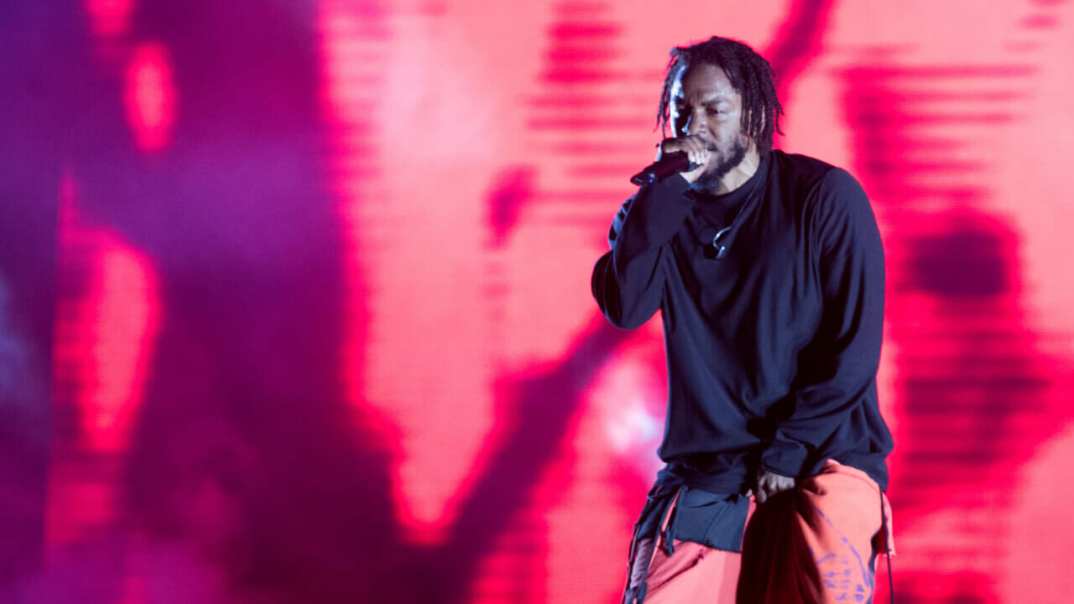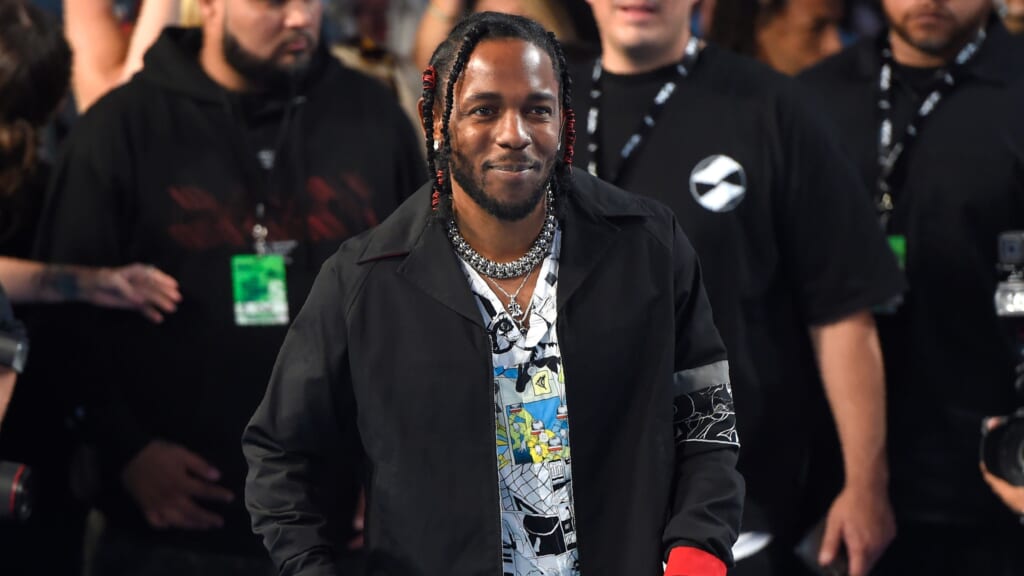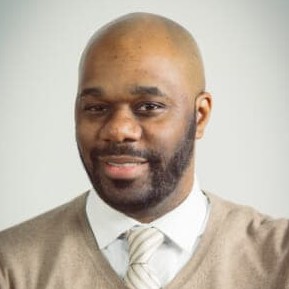A back-and-forth discussion about Kendrick Lamar’s ‘Mr. Morale & The Big Steppers’ with Panama Jackson and Matthew Allen
OPINION: Two of theGrio’s music writers discuss the highly anticipated album from Kendrick Lamar now that it has been in the world for a week.

Editor’s note: The following article is an op-ed, and the views expressed are the author’s own. Read more opinions on theGrio.
On May 13, 2022, Kendrick Lamar (Oklama) released his fifth studio album, Mr. Morale & The Big Steppers. The outstanding reviews came in hot and fast; Kendrick has positioned himself as an artist whose work is always worth digesting and analyzing. This album, in particular, gave us a lot to analyze, in both good and curious ways. Panama Jackson and Matthew Allen decided to have a discussion about the album now that they’ve had some time to sit with it. Touré gave us his review, now we’re sharing some reactions since it had some time to marinate.
Panama Jackson: It’s been about a week since the release of Kendrick Lamar’s fifth studio album, Mr. Morale & The Big Steppers. To call it the most anticipated album of the year is probably an understatement. I’m sure Pusha T is annoyed AF right now since I think this release arguably knocked his album right off the “Album of the Year” pedestal so many placed it upon. I’ve listened to it several dozen times, and I love it. It’s entirely self-indulgent, as if Kendrick needed to work some things out and because he’s a big enough artist that we’ll all listen, he could successfully release what amounts to an indy, personal record for mainstream audiences. It’s not perfect, of course, but we’ll get there. I’ve seen on social media that many people think it has no replay value, and I find that entirely wrong because I simply can’t stop listening to it.
Overall, it’s not Kendrick’s best album—I think that distinction still goes to good kid, m.A.A.d city—but he continues to expand as an artist and push his own envelope, which I think is better for the culture. Not sure this will get any new Kendrick fans, and if you think he’s overrated or that the narrative of Kendrick supersedes the art then this absolutely won’t change your opinion. I, however, am all in on Mr. Morale & The Big Steppers. What are your overarching thoughts, prayers and/or concerns about the album?
Matthew Allen: Here are my “over-arching thoughts” on Mr. Morale & The Big Steppers so far. Granted, it’s been a week since it came out, so I’m sure my opinion of it will change with time. That’s how it’s been for me with ALL of Kendrick Lamar’s albums. Section.80; good kid, m.A.A.d city; To Pimp a Butterfly; DAMN.—each and every one, I didn’t like them on first listen. It took a while before they all clicked, but once they did, I fell in love. For Mr. Morale, it’s taking me longer than usual to enjoy this album.
I never know what to expect from Kendrick’s LPs, but this wasn’t even on the radar for me. Strangely enough, despite the varying arrangements from song to song, the numerous flow and vocal inflections from Kendrick, Mr. Morale & The Big Steppers is sonically more cohesive than its predecessor, DAMN. As he said on the album, he chose himself. For better or for worse, he ignored fans and rhymed about things that most rappers won’t or don’t, using production and music I’ve scarcely heard from a rapper in over the past decade. Easily, his most polarizing album. I’m really beginning to ingest the musical elements of it more fully to allow myself to enjoy it. Lyrically, it’s still coming together for me. But I will say that out of all of Kendrick’s albums, these are the lyrics that make me feel the most uncomfortable.
PJ: I definitely agree that it’s his most polarizing. In fact, one of the more surprising subplots of this album release has been the number of people who have said that they either can’t listen to it because the subject matter is too dark or sad or who have surprisingly decided that maybe Kendrick is overrated because of it. That last group is smaller, but I have been surprised that it exists at all. Maybe I’ve listened to the album too many times at this point because I don’t feel uncomfortable listening. Of course, “Mother I Sober” and “Auntie Diaries” definitely veer into extremely personal territory. And yes, he definitely chose himself, but in a package that I find listenable and engaging unlike some super self-indulgent predecessors who swear they’re releasing classics (they are not). What made you most uncomfortable about the lyrics? And do you have any favorite songs thus far? I return to “Count Me Out” over and over again because of the musical buildup, and “We Cry Together” deserves awards for Taylour Paige’s performance.
MA: What’s interesting about this is the fact that I continue to listen to it because it’s uncomfortable in many places. Songs like “We Cry Together,” “Auntie Diaries,” “Worldwide Steppers,” and “Silent Hill” make me turn in my seat a lot, due to his rhetoric and due to the inclusion of Kodak Black, a convicted sex offender. Mr. Morale & The Big Steppers, after a week’s worth of listens, seemingly finds Kendrick in a place in his life where his viewpoints and values aren’t always in sync with Black societal norms. The execution of “We Cry Together” and “Auntie Diaries” especially are unsavory and sure to upset the apple cart of numerous subcommunities. And with good reason. Personally, regardless of the fact that I don’t necessarily agree with how he chose to write the aforementioned tracks, I think it’s fairly brave that Kendrick puts himself on the chopping block in this manner, cancel culture be damned. If I had to say that I have favorite songs on the project, I would say my favorite two are “United in Grief” and “Mirror” both because his vocal delivery is more in line with what I’m used to from him and because of his confessional lyrics, which is what makes past songs like “U” and “Fear” so compelling.
PJ: So, as soon as I heard “Auntie Diaries” I knew immediately it was going to be one of the most talked about songs on an album full of messy moments. And admittedly, I don’t love how he tackled the song. I also realized that I might be as clumsy, except I would have made a phone call or sent an email. I recognize that growth, especially for Black males, can be very messy and a process, but I’m surprised he didn’t see that coming in a way that would have him clean it up some. For an artist so intentional, it’s an interesting choice for a misstep. I genuinely don’t understand the Kodak Black inclusion, or shall I say, I don’t get the desire to (what amounts to) troll your audiences for potentially the sake of a larger point about cancel culture. I don’t know that Kodak brings so much to the table that the juice is worth the squeeze. But it’s possible that Kendrick is more aligned with Kanye West than he realizes (or acknowledges).

What I will say about this album is that I continue to find myself impressed with both his storytelling and his performance. Just reading Kendrick’s lyrics might not illuminate how talented he is; his delivery, though, is so convicted and so demonstrative that you feel him almost as much as you hear him, similar to Tupac. I think that can, at times, almost obscure some of the, perhaps, more confusing rhetoric. His storytelling has always been something that sets him apart and how he used this album as a means of unfolding his personal traumas and his “why” for being out of the limelight for so long because of personal reasons is the kind of stuff everlasting musical legacies are built upon. Kendrick is an artist that makes himself matter with his vulnerability. With that said, as an album, I’m not sure where I place this in his catalog. I like it more than To Pimp a Butterly and less than DAMN. but I also think it’s probably better than DAMN.? I’m confused. Where do you have it? What, if anything, do you think this album does for his legacy? When Beyoncé dropped Lemonade, it felt like her guard had been dropped and I think it changed her own legacy in a positive manner, inviting us into her world and her pain. This album from Kendrick is definitely more personal, but I don’t know that it changed the course of anything for me. What say you?
MA: Perhaps he “meant” to misstep? He speaks about condemning cancel culture and ignoring the internet in this album. I would suffice it to say that his artistic integrity drove him to be messy and clumsy on “Auntie Diaries” and “We Cry Together,” and to a lesser degree, “Father Time.” Chris Rock once said that before you can get a room to be clean, you have to make it dirtier to sort out what needs to be put in its proper places. As far as Kodak Black’s inclusion, I can’t say for sure why, and I don’t think anyone can. For people to try to use or redeem “canceled” people—much like Donald Glover has attempted with Chet Hanks and Liam Neeson in season three of Atlanta—you do it at your own risk. I think Kendrick will lose fans over this album for these reasons mostly. But I think maybe he wants to weed out fans and listeners who aren’t willing to stay on the ride during this bumpy portion.
Kendrick has always been a stellar storyteller, both in song and in the long form of an album. I’m sure the bigger picture of the story he’s telling with Mr. Morale & The Big Steppers will click with me in the coming weeks. I trust Kendrick in terms of his musical and lyrical choices. He’s earned it through consistent quality starting from Section.80 back in 2011. I’m interested to see where his mind is on the followup to this album. Maybe his views and execution of said views will be more refined. Sadly, many people who may benefit from seeing that evolution will be turned off and unwilling to listen. But I’ll be there.
PJ: Funny you mention his followup to this album. I actually have no earthly idea where he goes from here. It’s so personal that almost anything else will seem like he’s just placating the masses and not trying to further piss anybody off. Since this is Kendrick, who knows when that followup will come. For now I’m going to enjoy this album as much as I can. I like that you mentioned season 3 of Atlanta because there are some stark parallels. For one, this season is polarizing as hell. Secondly, it seems like they tried to do some things that maybe didn’t land as well AND trolled us all for no reason. The penultimate episode, “Rich Wigga, Poor Wigga” was both heavy-handed, weird AND featured Kevin Samuels and left most of us wondering just what in the hell they were trying to accomplish. Since the season has concluded, I’m going to say they failed. And I enjoyed many of the parts, but as a whole, I’m actually annoyed at this season.
The difference between Atlanta and Mr. Morale & The Big Steppers (aside from the obvious medium and one being real life and other a fantasy world) is that, to me, Kendrick’s personal unleashing of his demons adds value to a conversation around seeking therapy and growing as a person. He laid his sole bare and I think that counts for something, even if maybe we need to see where he goes to understand where he came from with it, if that makes sense. Aight, any last ideas or thoughts you want to shake before we shake this popsicle stand?
MA: Here are my final thoughts. First of all, I think season three of Atlanta was a success. It thrived because it leaned into the trolling. It was the epitome of irony and satire. Kendrick brought irony and satire to his previous album, DAMN., and it worked well. With Mr. Morale & The Big Steppers, I think Kendrick is just incredibly unfiltered and unmasked. A lot of times, music listeners fetishize the struggle, dark album by a genius artist and play up how tortured they are to hype up the mystique of a record. Kanye’s 808s and Heartbreak, Marvin Gaye’s Here, My Dear, Beyoncé’s Lemonade, and Mary J. Blige’s My Life come to mind in this regard. The only problem is that when an artist shows ALL their warts like Kendrick does on this album, they get more than they bargained for. This is the case with this album, both with lyrics and production. I think he wanted to match the scattershot style of music arrangement here to play up to the all-over-the-place themes and executions of said themes. I believe I will appreciate this album more down the line, but it will take time and commitment to do so. I’m not sure how many people will be willing to do that.
I’ll end with this; Harvey Dent’s quote from The Dark Knight: “You either die a hero, or live long enough to see yourself become the villain.” Good luck, Kendrick. I hope all the good favor you built with your previous projects doesn’t get wiped out in half the time or less it took to foster it. But if you’re OK with that for the sake of art and honesty, I respect it.

Panama Jackson is a columnist at theGrio. He writes very Black things and drinks very brown liquors, and is pretty fly for a light guy. His biggest accomplishment to date coincides with his Blackest accomplishment to date in that he received a phone call from Oprah Winfrey after she read one of his pieces (biggest) but he didn’t answer the phone because the caller ID said “Unknown” (Blackest).

Matthew Allen is a Brooklyn-based TV producer, director and award-winning music journalist. He’s interviewed the likes of Quincy Jones, Jill Scott, Smokey Robinson and more for publications such as Ebony, Jet, The Root, Village Voice, Wax Poetics, Revive Music and Soulhead. His video work can be seen on PBS/All Arts, Brooklyn Free Speech TV and .BRIC TV.
TheGrio is FREE on your TV via Apple TV, Amazon Fire, Roku, and Android TV. Please download theGrio mobile apps today!


